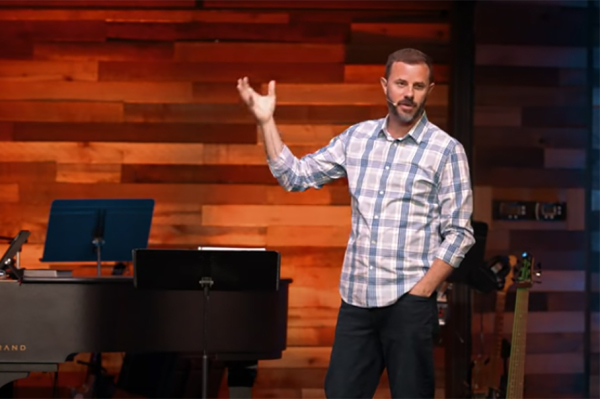EFCA defends removing 'premillennial' from statement of faith: not an 'essential' doctrine

The Evangelical Free Church of America recently defended the denomination’s decision to remove the word “premillennial” from their statement of faith, arguing that it was not an “essential” teaching.
In June, delegates at the EFCA Conference voted overwhelmingly to amend their Statement of Faith to remove the word “premillennial.”
Premillennialism is the belief that the Second Coming will bring forth a millennium-long reign by Jesus Christ on earth, as described in the Book of Revelation.
In an interview with National Association of Evangelicals President Leith Anderson on Sunday, EFCA President Kevin Kompelien explained an important part of the process of changing the Statement of Faith was to “clarify what’s not changing.”
“In this most recent discussion about premillennialism, as people shared their concerns,” explained Kompelien, “it was helpful for us to go back to the Article in our Statement of Faith on the Scriptures, which is rock solid and wasn’t changing at all.”
Kompelien said church leadership took the process seriously and actively engaged members and churches about the decision, with 22 different question-and-answer events across the United States.
Executive Director of Theology & Credentialing of EFCA Greg Strand told Anderson that the change does not alter the denomination’s distinctive of being “unified around the central truths of the gospel.”
“In history there have been various views and understandings that are considered evangelical and orthodox. So for some, it may have changed our distinctive,” said Strand.
“The sense was that there is an undergirding distinctive in the Free Church, and in some ways it’s that we’re not so distinctive. We focus on the essentials of the gospel of Jesus Christ and that is reflective of who we are.”
In February 2017, the EFCA Board of Directors unanimously voted for an amendment to change Paragraph 9, Article III of the Articles of Incorporation of the EFCA, the Statement of Faith.
The amendment sought to edit the statement “We believe in the personal, bodily and premillennial return of our Lord Jesus Christ” by changing “premillennial” to “glorious.”
The amendment required a two-thirds majority to pass at the conference held earlier this year and it ended up receiving 79 percent of the vote by the delegates.
EFCA Pastor Josh Brenner expressed support for the decision, explaining in a blog entry posted in June that with the change, the denomination now “truly majors in the majors.”
“Theologically, the EFCA has always been a big tent. It’s a denomination that puts out the truly essential aspects of the Christian faith in their Statement of Faith,” stated Brenner.
“I don’t know anyone in the EFCA who believes that a premillennial eschatology was essential to salvation or being obedient to the commands of Christ. For the reason, I don’t believe a millennial theological position belongs in a Statement of Faith.”
Jonathan Brentner of the website Rapture Ready, however, criticized the decision, arguing that premillennialism should be considered an “essential doctrine.”
“How much biblical support is necessary for someone to decide if something is a core element of faith or not? Premillennialism has an abundance of biblical support,” wrote Brentner.
“Those who deny the millennial reign of Jesus must devote large sections of the Old Testament and much of the book of Revelation to allegory. It’s only through altering the original intent of many of the authors of Scripture that one can conclude the premillennial return of Jesus is not a fundamental matter of our faith as New Testament believers.”





















